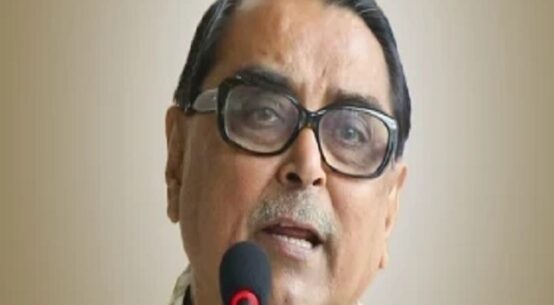Markets for sacrificial animals officially opened in the capital city on Saturday, but their arrivals are very slow as huge tailbacks on highways and ferry terminals stranded hundreds of cattle-carrying trucks for hours.
The delayed arrivals may cause a shortage of cattle in the markets and push the prices up at the last moment, said traders talking to the UNB correspondent.
Over 500 trucks carrying cattle and goods were found waiting for five to 10 hours to cross River Padma due to heavy traffic at Banglabazar-Shimulia route, according to UNB local correspondent on Saturday afternoon.
Though trucks from various districts in the south are waiting to cross, cattle traders have complained that more private vehicles are getting priority to board the ferries.
The long agonising wait on board the trucks in intense heat is making many animals sick.
Traders reported the death of 25 cattle because of their being stranded on not-too-comfortable trucks amid hot sun and occasional rains.
The traders said it is taking 10 to 12 hours to get a ferry to cross the river which is time-consuming and making the cattle sick.
In talking with UNB many leasers complained of slow arrival of the animals at city’s markets.
Leaser of Merul Badda, Aftab Nagar makeshift cattle market Mahbubur Rahman Shimul said that the cattle is coming very slowly. But the picture may change once the stranded trucks start entering the city.
Owner of a cattle farm in Mymensingh Sadar ‘ Bhai Bhai Dairy Farm’ Milon said they have sent only four cows in Dhaka as they are getting the expected price in Mymensingh.
“We are afraid the last moment heavy traffic will make us suffer as it is taking up to 10 hours to deliver the pre-booked cattle to our customers in Dhaka. So we are trying to sell our cattle in areas close to us,” he said.
Trader from Fridpur Karim Mollah and his cousin have brought 60 cattle to sell in city’s Shanir Akhra open field market.
He said “The number of cattle available this year is lower than the previous years due to raging pandemic. Over two crore cattle are sacrificed across the country each year. But we have this year a stock of one crore only. It will cause a shortage in the market.”
“There is no alternative but to ask for high price this year as our expenses on fodder and other inputs have doubled this year. The cost of rearing is high and so price will be high as well,” he said.
However, the government has from the beginning claimed there will be adequate supply of animals than the demand.
A total of 1.19 crore cattle are ready for slaughtering this year, including 45.47 lakh cows and buffaloes while the rest are goats, sheep and other animals, according to the Department of Livestock Services (DLS).
Visiting some markets on Saturday UNB correspondent found medium size cows with ranging from TK 65,000 to TK70,000 are in high demand.
Most buyers said there is a shortage of medium size cows in the market.
Kabir Islam who went to Shanir Akhra market said the price is beyond his budget.
“I am looking for a medium sized cow. But I can’t afford the price the traders ask. Almost all traders charged more than Tk.one lakh for midsize cattle. My limit is Tk-80,000 to TK 85,000,” he said.
The online sale of sacrificial animals is, however, increasing. So far, more than 2 lakh cattle have been sold online.
Public health experts welcomed it as a positive development as it helps avoid coronavirus risks.
Dhaka North City Corporation MayorAtiqul Islam said that arrangements have been made to sell the sacrificial animals online and supply the meat by trained staff.
More than 1.57 lakh cattle, worth about Tk 1116 crore, have been sold through online since July 2, according to data from the DLS.
During July 2-7, around 26,000 heads of cattle were sold at an average of 4,384 animals per day while sales spiked during July 8-10, when 74,518 cattle were sold at a daily average of 25,000 animals per day.
Owners of small farm houses are worried about timely delivery of the orders due to traffic hassles and shortage of vehicles.
Afsar Ali, an online service provider, said on-time delivery a day before the Eid is fraught with risks.
“Home delivery is convenient for the customers. But it is very difficult to provide cattle on time owing to heavy traffic,” he said.
Fisheries and Livestock Minister SM Rezaul Karim told UNB that the government will arrange vehicles for the remote farmers if they seek the support for delivering their sold sacrificial animals.

